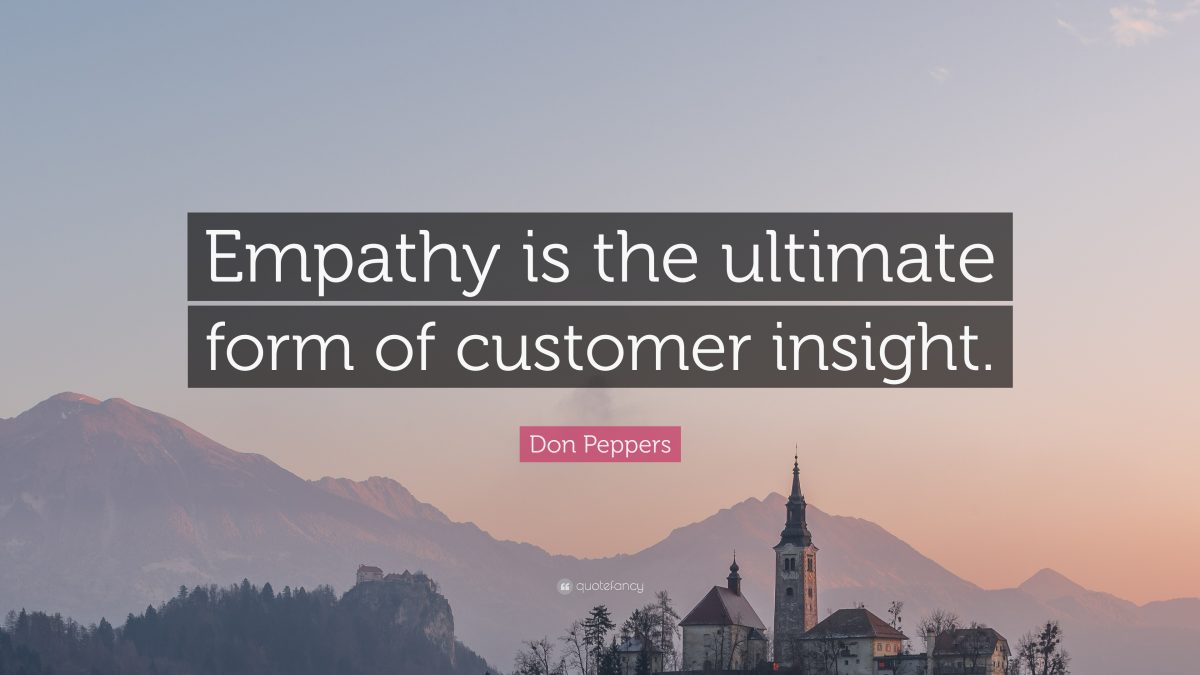Empathy is the action of understanding, being aware of, being sensitive to, and vicariously experiencing the feelings, thoughts, and experiences of another.
You’d think that this is such a core human trait that everyone practices empathy daily, but unfortunately, empathy tends to vanish when work is involved.
Many of us are not empathetic at work. We easily become insensitive to the feelings of others, use them for their own personal gain, or just don’t care. Working hard, hitting targets, climbing the ladder seem to be the only things that matter in our professional lives.
In the workplace, empathy isn’t just about being supportive, it is also the ability to understand the other person’s perspective, which will often lead to better negotiation skills, as well as team-building and conflict resolution.
However, this attitude does not get you anywhere in the workplace in the long term. If you’re a manager and your employees are not happy with what they do for a living, they often feel disconnected or disinterested in what they do, find ways to cut corners, or forgo ethics to impress you.
As a manager who lacks empathy towards your staff, you are likely to experience high turnover rates and a frustrating amount of resistance to get things done.
As an employee who’s poor at empathy, you’ll find yourself burning out really quickly as everyone around would appear like a roadblock to your happiness.

3 Ways to Increase Empathy at Work For Managers:
If you want your employees to be more productive and passionate about their work, you need to be like Optimus Prime and less like Megatron.
Lead with empathy, value your crew as human beings, and care about not just what they bring to the weekly reports and balance sheet, but their unique contribution to your organization’s cause.
- Provide an environment where people can speak up about their feelings without any fear of repercussion
There has been a rise in mental health-related cases and it is imperative that we provide an environment where people can speak up about their feelings without any fear of repercussion and retaliation.
Mental health is one of the most important topics of our time, yet so many people are afraid to be open about their struggles. According to the National Alliance on Mental Illness, 1 in 5 adults in the United States has some form of mental illness, a lot of times, these are work-induced.
Creating a safe space to speak about professional issues like career progression, workload, co-worker conflicts may seem simple, but without explicit reminders, leadership examples, and positive reinforcement, most employees will not develop trust in the system to keep communication lines open and honest.
2. Ensure that everyone feels comfortable asking for help
The workplace is an environment where it’s important to have a culture of inclusiveness. This includes providing opportunities for people to ask for help. Some people are hesitant to ask for help because they think that they will be judged or that others will think that they are incompetent. These feelings can lead to increased stress, decreased productivity, and lower job satisfaction.
3. Listen to what others have to say as a leader and don’t make judgments
The art of listening is one of the most important skills for a leader to have. A good leader will always be open to new ideas and perspectives, but they also know that they can’t take all their own ideas without weighing them against the input of others. A good leader is someone who values their employees and will put their best efforts into making sure that everyone working for them is happy and fulfilled
3 Ways to Increase Empathy at Work As an Employee
- Practice self-awareness
Understand what motivates you and use that knowledge to understand these same motivations in others.
Self-awareness is the first step to becoming more mindful of your thoughts, feelings, and actions. By understanding what motivates you and how that may be different for others, you’ll be able to work better with others and be happier with yourself.
Understanding what motivates you and how that may be different for others will help you work better with others and be happier with yourself.
2. Be mindful
Take time away from the usual day-to-day routines and focus on present emotions and feelings.
The old adage says, “Time heals all wounds.” However, this simply isn’t true. Time doesn’t heal anything. People heal themselves. Another common phrase is “take your time.” This can be counter-productive because it provides a reason for procrastination. The best way to deal with difficult emotions is to develop a sense of urgency and to take action immediately
Emotions like sadness, anger, and frustration can be overwhelming. The best way to deal with them is to develop a sense of urgency and take action immediately. This will help you to understand what’s going on and find a healthy way through it.
3. Put yourself in someone else’s shoes
Try to imagine what they might be feeling, how they may see the situation, and how their needs may differ from your own.
Conflict is inevitable and inescapable. We all experience conflict in some form or another, whether it be with our colleagues, friends, family members, or even ourselves. Conflict can be good at times, but it can also be very damaging. To be successful in conflict, you need to learn how to deal with it responsibly and maturely.
Understanding the other person’s perspective and taking their needs into consideration is crucial to preventing these conflicts from escalating any further.
The Workplace Doesn’t Have to be Dog Eat Dog
A new study published by the Association for Psychological Science found that if you want to succeed in the workplace, you need to collaborate with your colleagues beyond projects and tasks and be an empathetic human. The study found that those who were seen as less empathetic and caring were less likely to be promoted than those who were more so, and even if they did move up the ladder, they’d fail as leaders in the future.
Don’t forget that your colleagues are humans too. They have their own lives, families, friends, interests, and struggles to deal with
One of the biggest mistakes people make is underestimating the importance of maintaining good relationships with colleagues. You may think that you can move on from a stressful day at work by throwing down some candy and blasting Netflix all night, but that doesn’t solve anything.
Taking time to speak to your colleagues about their lives and what they are struggling with will help relieve some of the stress for all parties which will only strengthen your professional relationships resulting in a better working environment and business results.
I’ll close this topic with this talk by Simon Sinek, enjoy.




0 Comments